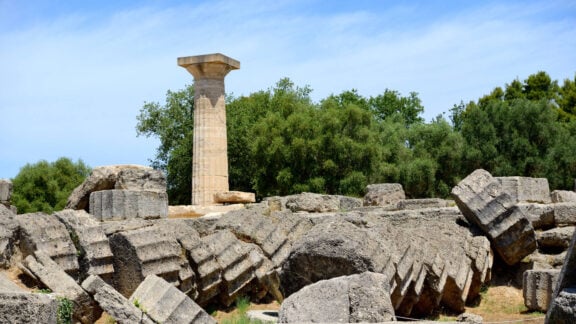Professor Donald Horne AO (1921 -2005), for those who are not aware, or who have forgotten, was an Australian academic and public intellectual who ‘coined’ the well-known phrase pertaining to Australia: ‘The Lucky Country’.
This term comes from the title of his 1964 book The Lucky Country and specifically from the leading words of the book’s last chapter “Australia is a lucky country, run by second-rate people who share its luck”.
Horne’s statement about the established elites of the time was arguably indicative of 1960s and was lamenting the fact that during that period Australia, unlike the rest of the industrialised world, was enjoying high standards of living not because it was a clever country, but because of its natural resources and its history.
I draw upon Donald Horne today because of the ongoing Member of Parliament travel allowance claims issues.
I find it hard to believe that so many leaders and representatives of the people of this country, starting with the new prime minister and stopping with the ‘countless’ ministers and MPs from both sides of politics, can make an error in judgment or be so mean spirited and hip-pocket conscious when it comes to claiming money for their travelling allowances.
I find it difficult to comprehend how politicians, with their salaries and other allowances running into the hundreds of thousands of dollars, can claim a few dollars more for travel activities in a country of growing economic inequality.
It is hard to understand their attitude and explanations, especially when their actions, thinking and justification do not take into consideration the fact that the political process and the politicians themselves in the Western World, including Australia, are losing the confidence of the people. If in the last federal election 3 million people did not turn out to vote, just imagine what might happen in the future when trust in the political process is undermined further through the travel-deduction actions of a substantial number of politicians.
Is it only a “greedy grab on taxpayers” as the Herald Sun in Melbourne entitled its editorial this week? Is it only an issue of repaying the money back, now that everything has become public? Or does it require more than just an urgent and comprehensive review of expense entitlements by politicians, with stricter guidelines replacing the current rules. Is that going to be the only focus of the media and public debate so far?
If the debate is limited to addressing the issue along those lines, then we are seeing the trees and missing the forest.
Common logic, prudence, common sense standards, and above all political sensitivity and awareness by our elected leaders went walkabout on this issue. Were they not aware or couldn’t care less about the results of this year’s Lowy Institute finding, which indicated alarmingly that less than half, namely 48 per cent of young Australians (18-29-year-olds), stated that they preferred democracy over any other kind of government?
As Donald Horne used to call them, the “good qualities of Australians” must not be taken for granted or misunderstood. Their non-doctrinaire tolerance must not be taken for indifference, and their sense of fair play must not be provoked. Interest in material things need to be shared by as many people as possible, not only the privileged few. The Australian sense of reserve, adaptability, fraternalism, scepticism, and stoicism, all these prerequisites in order to build a greater and more inclusive nation, must not be misunderstood or compromised.
The elected leadership of the country needs to nurture Australian qualities by example as well as take the lead in exercising moral superiority. What the travelling allowance debacle reveals is that some politicians are mean spirited, narrow-minded and selfish.
These are bad habits Australia can do without. Otherwise Donald Horne’s statement of 50 years ago will still apply today.
Advertisement
Travel allowance claims
As Donald Horne used to call them, the “good qualities of Australians” must not be taken for granted or misunderstood, says Kostas Karamarkos in this week’s opinion







